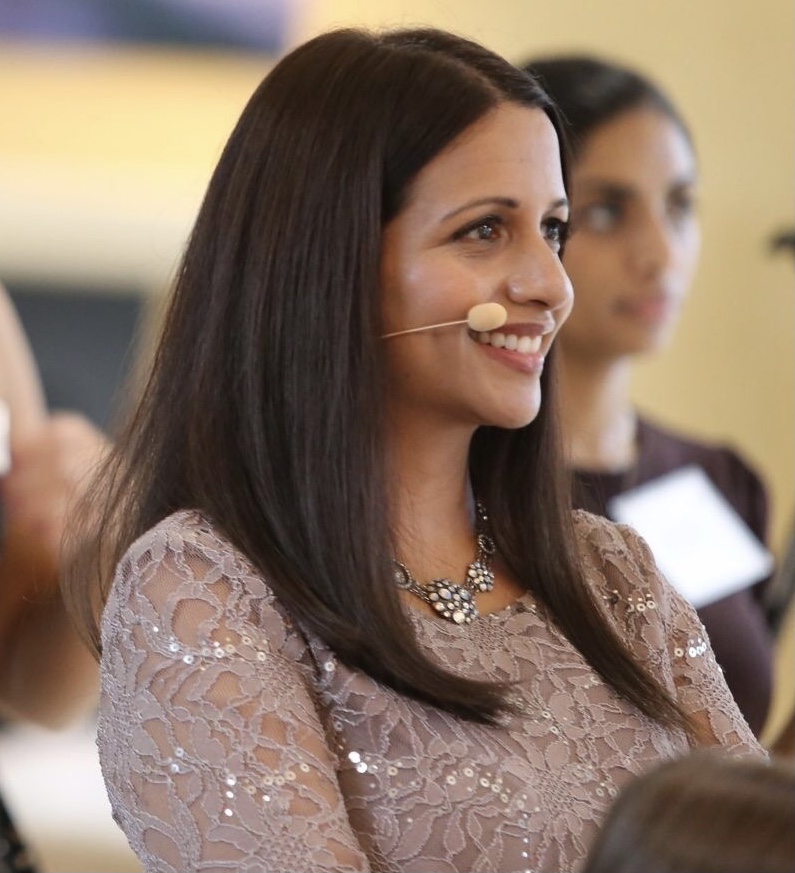I was recently interviewed by Oracle SmarterCX about The Corner of the Court Project. “What do you see as your role (in your work with the project)?” the interviewer, Mia, asked me.
I replied, “I see my job as going out and looking at great examples, giving guide sheets and tips on clear behaviors they [men] can take and do as an ally, so that they can feel like they’re moving the needle.”
It’s been 8 months since I wrote and shared the first article “6 Things Great Male Allies Do” and it’s time for another. At The Corner of the Court Project we feature women’s stories of male allies in an effort to show men how — through even small behaviors — they can make a real impact in supporting a woman’s professional journey.
Many of our men often express they don’t even know they are allies; yet the stories from our women show measurable outcomes of their allyship leading to great career successes.
So, what are the seemingly simple — yet highly powerful — behaviors male allies are displaying?
Read on for 5 behaviors curated from our women’s stories. Since our project focuses on empowering each individual male ally, I have intentionally phrased each with what “He” does. Which of these behaviors can YOU adopt?
1) He states his role (as a sponsor or mentor) with intention
“Selvan shared his intention to sponsor me right from the start,” says Sonali. Selvan was the head of her team and skip-level manager. She continues, “I can confidently say that his mentorship steered my career in a far better direction than if I had met a leader who didn’t focus on crafting [and] providing her support and guidance through those crucial years.” Good male allies are not afraid to be clear about how they plan to support a woman’s career.
This was also Julie’s experience; when Mike, her company’s Executive Vice President left after 20 years, “He came to me in Washington and told me he wanted me to go for his job,” she says. “He championed me.” Setting clear roles helps set healthy boundaries and also drives positive accountability for both the male ally and the woman he is supporting.
2) He leverages and shares the power of his own network
“I had always held Ron in extremely high regard,” says Inga. “He’s not only a prolific author of articles in top academic journals, he has also published well over 20 books. When it came to my [own] book, bit by bit, I worked until Ron one day said, ‘Great, you’re ready, now I’ll introduce you to my publisher.’” Ron is a powerful example of what great allies do: They nurture their diverse relationships and seize opportunities to support women through these networks.
Kelly B. agrees: “The most meaningful thing Harvey has done for me, is introduce me to other like-minded, ambitious young women. These women have great energy, big dreams and are wicked smart; I’ve been so grateful for each and every introduction Harvey has made, because they always reinvigorate me.”
3) He is his authentic self
A lot of our women’s stories offer illustrious examples of men who stand by their principles, values, and vision for their product and workplace. Oksana writes about Geoffrey Frost, legendary Chief Marketing Officer of Motorola: “I learned a great deal from Geoffrey — his relentless pursuit to ‘outsmart, not outspend’ the competition, unending creativity, constant focus on putting humanity ahead of technology in engineering culture, and his unshaken belief that a small group of rebels can tackle the giant – all the while without preaching.”
Kelly P. speaks about her male ally, Paul, in a similar light: “As a man who successfully embodies the YMCA’s culture of respect, responsibility, honesty, and caring, he knows that to lead an innovative and growing organization those values must be applied to all people.”
Great leaders are authentic to their beliefs; it’s no coincidence that great male allies are also led by values that help them make a real impact while also being positive role models.
4) He provides actionable tools for discussion and support
Great mentors and allies don’t try to have all the answers; rather, they help provide a framework for discussion and reflection. Stephanie recalls her mentor, Daron Roberts, started their work together “by giving me ‘homework,’” she says. Examples of Daron’s advice included tailoring her CV to different industries, and reviewing her LinkedIn as she built her brand.
Rory took a similar approach when mentoring Nicole through a career transition. Nicole says, “I was given an ‘assignment’ by Rory, that I found particularly useful. He asked me to define my five value pillars. This entailed writing down a list of ten things that stir my soul – ten examples where I was absolutely crushing it – not necessarily in a career, but in all areas of my life.”
The frameworks need not be extensive, but when great male allies are action-oriented they can help women lead to breakthrough career and personal outcomes.
5) He seeks to empathize, understand and connect
Mentors, Sponsors and Allies — whatever we call them, or whatever the specific role is, they all represent relationships. And relationships are built on trust and mutual understanding. Great allies take time to relate to and empathize with the women they are supporting.
One example is Harvey’s mentorship of Kelly B.: “We immediately connected over a shared history of our respective childhoods in military families,” she says. That shared history was a wonderful data point for Harvey as Kelly B. also writes, “He knows how important the sense of belonging is to me (military childhood).” As such, she says Harvey has helped build and expand her network and “helped me find professional ‘teammates.’”
Similarly, Susannah writes of her male ally, LtCol Kevin Korpinen, after she joined his unit: “I found that LtCol Korpinen was actually interested in finding answers to the challenges faced by women in the Marine Corps,” she says. “When we discussed Lean In, by Sheryl Sandberg, he said, ‘I want you to teach our unit about that!’” Susannah recalls thinking, “What? A senior military officer wanted me to talk about gender parity, in front of Marines?!”
Simple acts of listening, connecting and finding mutual ground lay a positive foundation for allies to make an impact. And in the spirt of The Corner of the Court Project, these empathy-driven behaviors are the bedrock of strong and lasting gender partnership.
For more examples of what great allies do, visit The Corner of the Court Project — and share your story! We are always looking forward to hearing from women and men about their successful outcomes working together.
View this article on LinkedIn.

